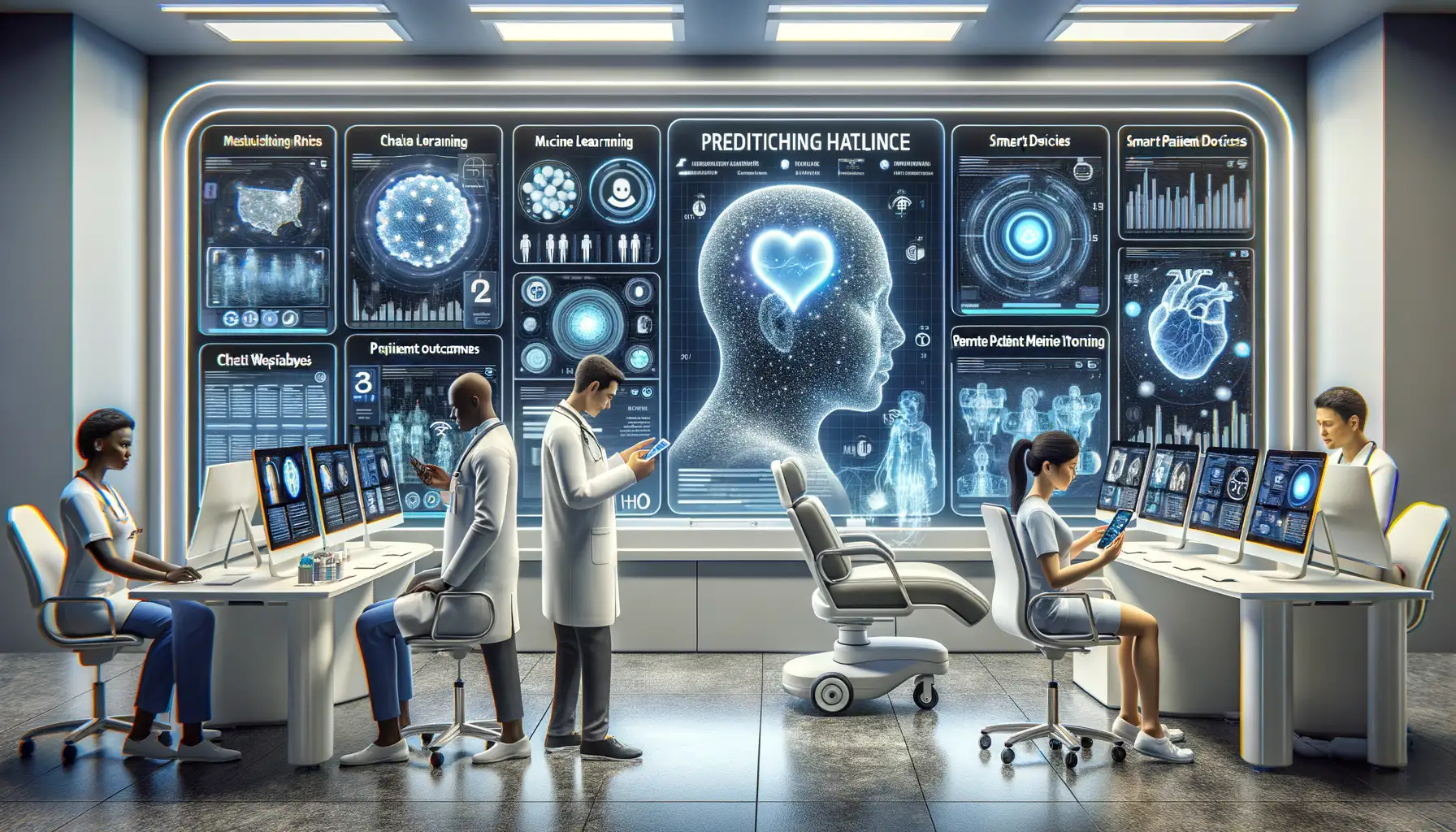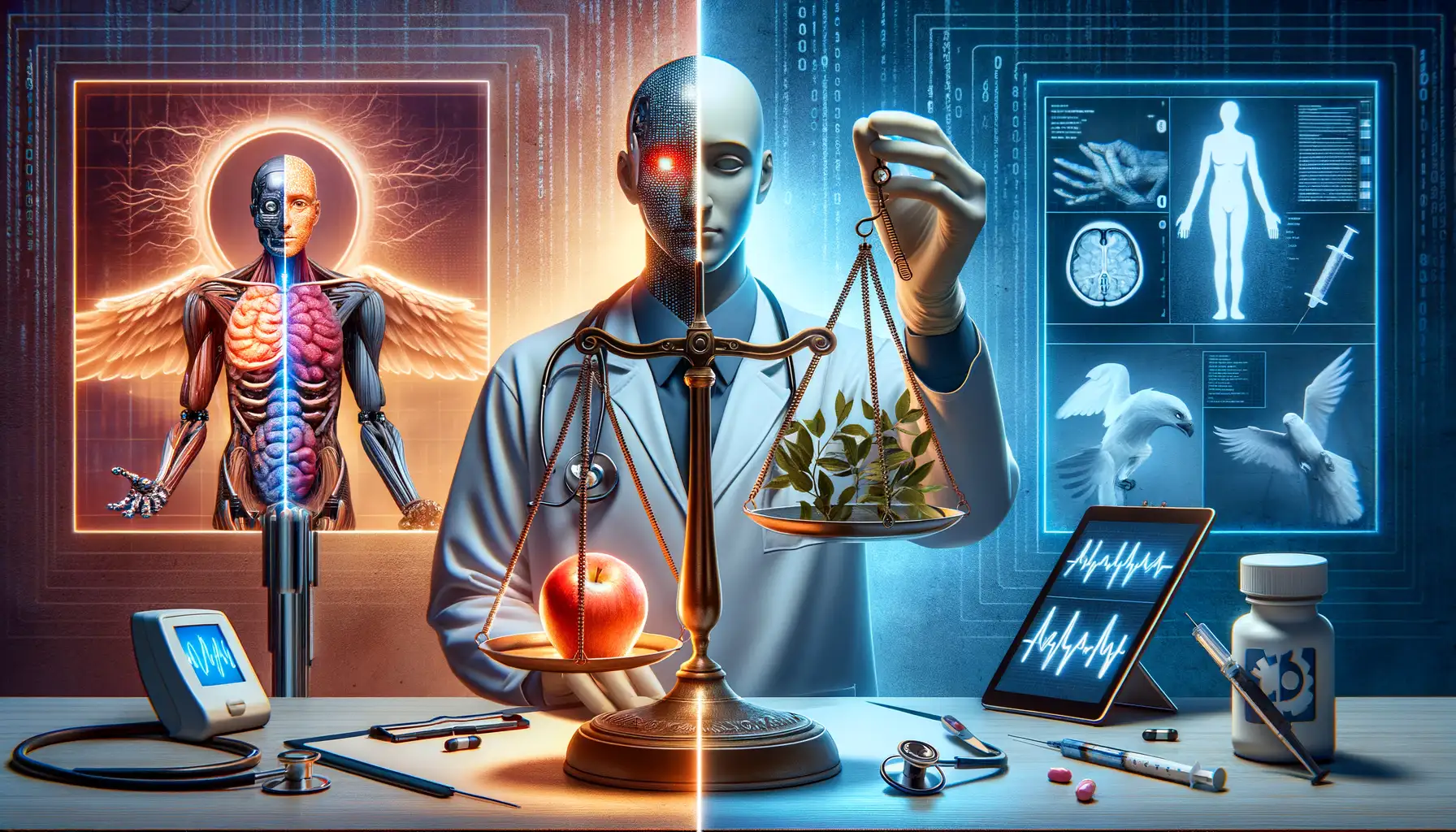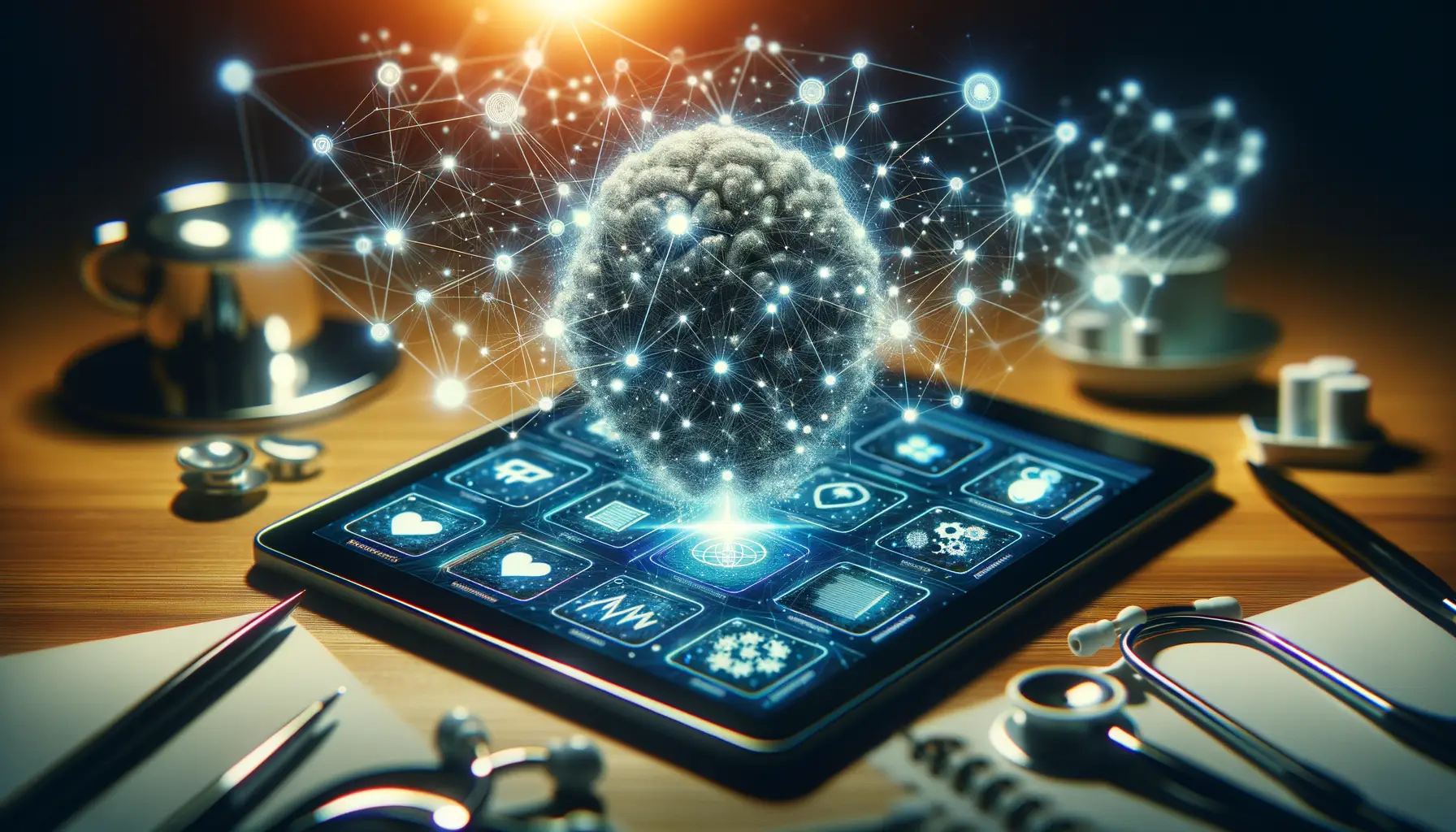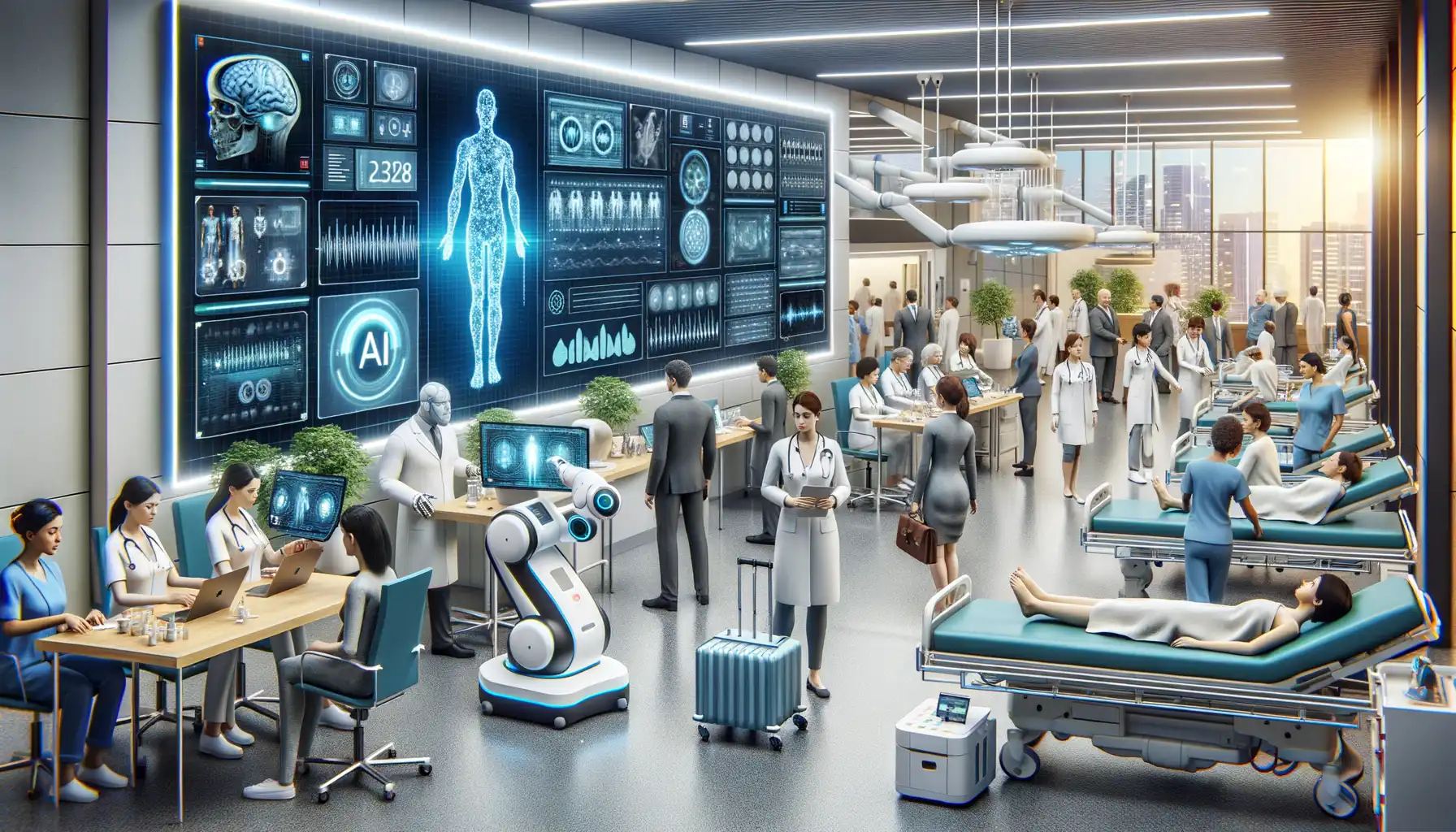Importance of AI in Modern Healthcare
Revolutionizing Healthcare with AI’s Human Touch
Imagine walking into a hospital where technology works like an invisible superhero, quietly saving lives behind the scenes. That’s the magic of Artificial Intelligence (AI) in modern healthcare. It isn’t just about machines calculating faster than humans—it’s about reshaping how care is delivered, making it smarter, more precise, and unbelievably personal.
Why does this matter? For starters, AI can analyze oceans of data in seconds. Think of millions of patient records, medical scans, and complex genes—it’s like trying to find a needle in a universe-sized haystack. AI dives in and pulls out answers that help doctors detect diseases earlier or predict risks before they happen. In other words, it turns the impossible into the actionable.
But let’s not forget its ability to listen—or rather, interpret. AI-powered apps can now decode patient symptoms via text or voice, making virtual healthcare feel less clinical and much more… human. Isn’t that revolutionary?
Key Areas AI is Transforming Healthcare Mobile Applications

Revolutionizing Diagnoses and Predictive Analytics
Imagine your smartphone acting like a mini healthcare assistant, catching potential issues before they become emergencies. With the power of AI-driven diagnostics, mobile apps are stepping up in unprecedented ways. They’re no longer just tracking your steps or reminding you about your next pill—they’re diving deeper. AI algorithms can now sift through oceans of medical data to detect patterns even seasoned doctors might miss. For example, apps using AI for predictive analytics can analyze symptoms you log daily and warn you about possible conditions, like heart disease or diabetes, before they strike. It’s like having a crystal ball, but one backed by data, not magic.
- AI-powered apps help identify skin abnormalities via image recognition.
- Some tools assess breathing patterns to predict respiratory issues.
- Specialized apps review blood sugar fluctuations for tailored diabetes care.
Personalized Treatment Plans at Your Fingertips
One-size-fits-all isn’t exactly comforting when it comes to health, is it? That’s where AI shines again. By analyzing your medical history, lifestyle habits, and any wearable device data, AI tailors treatment plans uniquely suited to you. A fitness tracker with an AI module, for instance, doesn’t just congratulate you on closing your rings; it suggests specific exercises based on your current health stats. This level of hyper-personalized care feels like having a doctor in your pocket, guiding you with precision and empathy.
Challenges and Ethical Considerations in AI-Driven Healthcare Apps

Untangling the Knots: Challenges in AI-Powered Healthcare Apps
Imagine this: you download a shiny new healthcare app, powered by cutting-edge AI. It promises to monitor your vitals, predict health issues, and even suggest personalized treatments. Sounds like magic, right? But here’s the thing—behind all the glitz and algorithms lies a web of challenges that companies and developers wrestle with daily.
For starters, how accurate is the data? AI thrives on rich, high-quality information, but real-world data can often be messy or incomplete. Garbage in, garbage out—if the data feeding the algorithm is flawed, the results could lead to misdiagnoses or incorrect predictions. Picture an AI misunderstanding your unique lifestyle or genetic predispositions because of inadequate datasets.
And then comes bias. AI models tend to reflect the biases in their training data. Highlighting one stark example: if an app is trained predominantly on data from Western populations, it may overlook crucial nuances in other ethnic groups, leaving many users underserved.
Decoding Ethics: Who’s Watching the Watchers?
Ethics in AI-driven healthcare apps is where things get murky. Let’s talk privacy—a term as fragile as a soap bubble in today’s digital world. Sharing your heart rate or sleep patterns might seem innocent enough, but combine that with location data, and suddenly, companies know more about you than your best friend.
Then there’s the elephant in the room: accountability. If a doctor makes a mistake, you know who’s responsible. But what about an app? Can you sue an algorithm? Can it apologize for getting it wrong? This lack of clarity leaves both patients and healthcare providers navigating a legal gray area.
Transparency, too, is often sacrificed at the altar of innovation. Many users have no idea how these apps make decisions. Are recommendations based on your actual health data, or is it just a cookie-cutter response generated for everyone? Without clarity, trust wobbles—and in healthcare, trust isn’t just important; it’s everything.
Emerging Trends and Future Directions in AI for Healthcare Apps

Where AI Meets Tomorrow’s Healthcare Needs
The healthcare landscape is a swirling tide of innovation, and right at its heart is the evolving role of Artificial Intelligence. Curious about what’s on the horizon? One word: transformation. From futuristic diagnostics to hyper-personalized patient care, AI is rewriting the rules.
Picture this: an app that doesn’t just track your vital signs but predicts health risks before they even knock on your door. Emerging trends are steering us toward proactive medicine powered by predictive analytics. By collecting data from wearables, health records, and even genetic information, AI can help doctors make decisions faster and with laser-like precision.
- Natural language processing (NLP): Imagine seamless consultations where your healthcare app understands you like a human doctor.
- AI-driven drug discovery: Reducing years of testing into months through algorithmic breakthroughs.
- Digital twins technology: Virtual models of patients where treatments are tested before implementation—sounds straight out of sci-fi, doesn’t it?
Personalization: The Heartbeat of Future Apps
But let’s not overlook what makes these innovations truly game-changing: personalization. AI is evolving in ways that feel almost intimate. Genomic-powered apps will soon recommend tailored diets or medications, turning generic health advice into something that feels custom-built for you. And accessibility? These tools won’t just serve tech-savvy individuals; they’re being designed to reach underserved communities, because health is universal.
brace yourself—AI in healthcare apps isn’t just a trend. It’s a revolution, a movement that’s lifting care to heights we never imagined. And who knows? One day, it might just save your life.
Impact of AI on Patient Care and Healthcare Systems

Revolutionizing Patient Care with AI
Imagine walking into a hospital where waiting times are nearly extinct, doctors have supercharged diagnostic tools, and your treatment plan feels like it was tailor-made for your DNA. That’s exactly the kind of transformation AI is unleashing in patient care.
AI-powered healthcare apps are changing the game by helping doctors and nurses cut through mountains of data and focus on what matters most: you. Take personalized medicine, for instance. Thanks to AI analyzing genetic information, treatments can now target diseases like a heat-seeking missile. No more cookie-cutter solutions—your care can finally feel as unique as your fingerprint.
Here’s just a taste of what AI brings to patient care:
- Early disease detection: Algorithms that flag irregularities invisible even to the sharpest human eyes.
- Virtual health assistants: Chatbots that help you track medications or clarify symptoms in real time.
- Seamless coordination: AI bridges communication gaps between specialists, labs, and pharmacists.
Transforming Healthcare Systems from the Ground Up
On a larger scale, AI is like the conductor of an orchestra, ensuring every part of the healthcare system plays in harmony. Administrative tasks once bogged down by inefficiency are now streamlined by AI-based automation. For example, billing and insurance processing are no longer dreaded hurdles but smooth, almost invisible processes in the background.
And let’s not forget resource allocation. Hospitals can predict patient influx or identify critical supply shortages ahead of time. This isn’t just convenience—it’s life-saving foresight. With AI steering the ship, healthcare systems are evolving into organisms that adapt faster than ever before, meeting patient needs with unprecedented precision.
